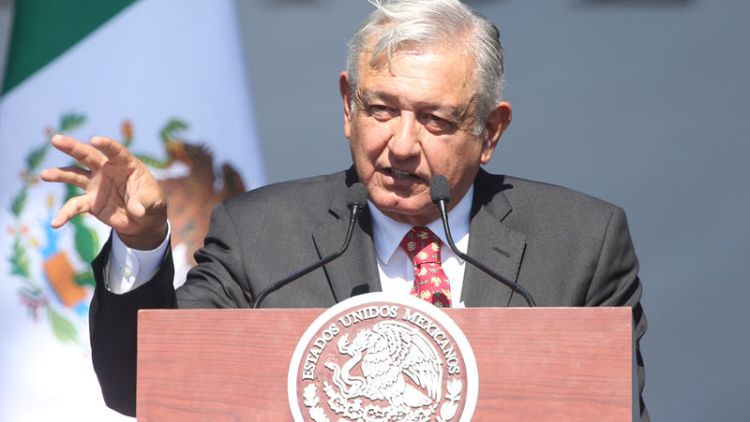MEXICO CITY (Reuters) - Mexico's government said its meetings with U.S. Attorney General William Barr on Thursday will focus on bilateral cooperation, as they seek to address the threat of Mexican drug cartels, which the Trump administration wants to label terrorist groups.
Barr's meetings in Mexico were arranged after U.S. President Donald Trump said last week he would designate the drug gangs as terrorist organizations in response to a series of bloody security breaches triggered by cartel gunmen.
Tensions over the cartels intensified last month after suspected cartel hitmen massacred three women and six children of U.S.-Mexican origin in northern Mexico.
Barr is due to sit down with Mexican President Andres Manuel Lopez Obrador and other senior officials from around midday.
Lopez Obrador told a regular news conference the bilateral talks would focus on cooperation, and that during the meetings a document will be reviewed that will serve as a point of reference. He did not provide further details.
The U.S. State Department said on Wednesday it was working with the Mexican government to identify the "appropriate tools" to help it tackle the threat posed by cartels.
Designating groups as terrorist organizations aims to disrupt the finances of suspected members and their supporters via U.S. sanctions like asset freezes and travel bans.
While it would not directly give the United States authority for military operations in Mexico, many Mexicans are nervous Trump could use it as a pretext for unilateral intervention.
Lopez Obrador has attempted to pursue a less confrontational approach to the gangs and has rejected any intervention. He has held out the prospect of cooperation with the United States but says his government has the wherewithal to tackle the problem.
(Reporting by Daina Beth Solomon and Dave Graham; Editing by Daniel Flynn and Steve Orlofsky)
